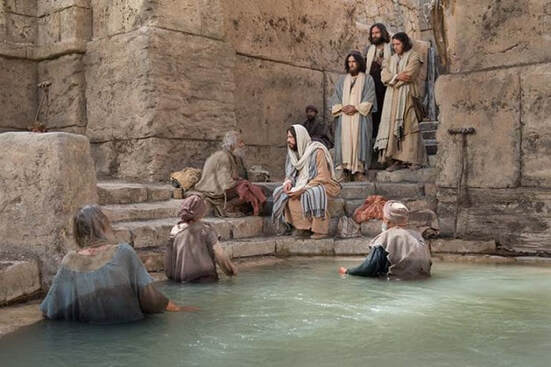|
Last week I used Henry Cloud’s book Boundaries for Leaders to describe Learned Helplessness. Let me begin this week by giving an example of how Jesus confronted it. John alone records for us the encounter Jesus had with a paralytic at the Pool of Bethesda. After this there was a feast of the Jews, and Jesus went up to Jerusalem. Now there is in Jerusalem by the Sheep Gate a pool, which is called in Hebrew, Bethesda, having five porches. In these lay a great multitude of sick people, blind, lame, paralyzed, waiting for the moving of the water. For an angel went down at a certain time into the pool and stirred up the water; then whoever stepped in first, after the stirring of the water, was made well of whatever disease he had. I began to look at this passage very differently several years ago when I heard a pastor who was serving in a deeply impoverished inner-city area. He had grown up in a stable blue-collar family but now encountered learned helplessness on a daily basis. From his experience, he pointed out that Jesus asked the man, “Do you want to be made well?” I had previously missed that “little detail.” The man had been in his condition for thirty-eight years. Depending on the age when his injury/illness began, it is possible that he had outlived many of his contemporaries—that might have been the reason he caught Jesus’ eye. Jesus saw what the man had been blinded to by learned helplessness—the possibility of getting better.
From this very short description of the encounter, we can glean a lot about what learned helplessness does to one’s perspective. We become…
As I indicated last week, there are seasons in the life of every human being where we can slide into learned helplessness. We can find ourselves in a very difficult place emotionally, physically, or spiritually where everything seems to be beyond our control, and we don’t see an end to it. We begin to think and act like the paralytic at the pool of Bethesda. Fortunately, for many of us, these seasons turn out to be “relatively short” walks through the valley of the shadow of death. We begin to lean into the skills and experiences we have used in the past; we leave the things we can’t control to God; we walk in simple child-like obedience doing the next right thing. We are fortunate to be one who has been blessed by God’s mercy as He extends it to thousands of generations of those who love Him and keep His commandments (Genesis 20:5b). However, an increasing number of people in our nation are born into generational learned helplessness. They have no positive experiences upon which to lean; they don’t have healthy role models upon which to build their life; they are living with the consequences of their parent’s and sometimes grandparent’s decisions. Unfortunately, the iniquities of previous generations are visited upon the children to the third and fourth generations (Exodus 20:6). I have observed the slow and often regressive work of God in the life of those who have experienced the impact of generational sins and are seeking to find a better way through Jesus Christ. Patient, persistent love is required, and that isn’t easy in our instant gratification culture. Before I describe the five-step process Cloud suggests for overcoming learned helplessness, let me challenge you at a few points:
Yours in Christ, Mark R. Elliott, AMS
0 Comments
Leave a Reply. |
AuthorRetired in April 2022, Mark R. Elliott served as a Director of Missions (Associational Mission Strategist) in Western Iowa and Eastern Nebraska for almost three decades. He is a strong advocate for obedience and Biblically based disciple making. As such, he knows that making healthy disciples requires Christian leaders to be constantly pursuing spiritual maturity—be lifelong learners. Because of the time constraints of ministry, most pastors focus their reading list on resources that assist them in teaching and preaching the Word of God. As such, books focusing on church health, leadership development, and church growth tend to find their way to the bottom of the stack. With that reality in mind, Mark has written discussion summaries on several books that have helped him to personally grow in Christ and that tend to find themselves on the bottom of most pastor’s stack. Many pastors have found them helpful as they are able to more quickly process great insights from other pastors and authors. Archives
April 2022
Categories |
Looking for something? |
© COPYRIGHT 2024. ALL RIGHTS RESERVED.
|




 RSS Feed
RSS Feed
